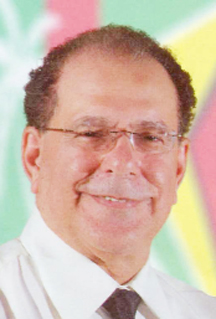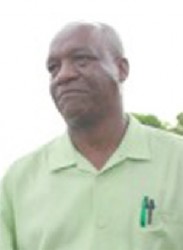Television broadcasters plan to mount a legal challenge to the new $2.5M annual licensing fee recently announced by the Guyana National Broadcasting Authority (GNBA), pioneering broadcaster Anthony Vieira said yesterday, while the main opposition APNU charged that the increase would force small stations out of business.
“We have hired attorneys to challenge the $2.5M and to challenge the way the $2.5M is implemented,” Vieira told an APNU news conference.
Vieira later identified the operators of channels 2, 7, 9, and 13 being among those who will be party to the legal suit.

Last month, head of the GNBA board Bibi Shadick declared that from this year broadcast licence fees will be no less than $2.5M per year. “The decision of Cabinet was that the annual licence fee for all licensed broadcasters… be equivalent to three percent of the year preceding, for commercially-operating firms… provided that the three percent is no less that $2.5 million,” she had said.
APNU executive Joseph Harmon also denounced the new fee yesterday, saying that the coalition believes that the across-the-board sum was unfair to small and out of city stations with less earning capacity than larger and centralised ones.
He said too that small stations would be forced out of business because they will be unable to meet the large fee coupled with their own overheads. “Television stations that are perceived to be sympathetic to the views expressed by the opposition will be targeted in this technique of fees manipulation to make it less profitable to operate and eventually put them out of business,” he said.
Harmon, who said the fee must be rejected, also said that APNU was concerned about some of the provisions of the Broadcast Act of 2011, which he suggested contravene the constitutional right to freedom of expression.
“The licence fee of $2,500,000 is a massive increase from the sum of $240,000 which television broadcasters previously paid annually… The issue of licensing fees brings into sharp focus APNU’s concerns about the Broadcast Act No 13 of 2011 and some of its provisions which offend freedom of expression guaranteed in Article 146 of the Guyana Constitution,” he said.
In addition, Harmon noted that the state-owned stations were already beneficiaries of a large percentage of advertisements due to unfair competition. “In an environment, where advertising dollars is a scarce commodity, where state-owned media compete for the same advertising dollar as the private broadcast media, where advertisers have expressed fear of victimisation when they advertise on certain TV stations, the time when the TV stations can be faced with closure cannot be far off,” he added.

Harmon criticised the GNBA Board for not playing a role in determining the licensing fees. He said he believed that as an autonomous office, the board should exercise its functions and not have government determining its role. As a result, he called on the board to review the prescribed fees. “If Ms Shadick, could say this is what she was given by Cabinet, then clearly the [members of the] board [themselves] did not exercise their minds to the reality of broadcasting…. The Broadcast Act 13 of 2011 which gives the President the power to appoint 6 of the 7 members of the authority without consultation permits a level of arbitrariness and interference by Government,” he said.
The coalition also plans to soon table amendments to the Broadcast Act of 2011.
When Stabroek News contacted Shadick about the concerns, she informed that at the time she could not comment but will do so today when she would have personally analyzed concerns raised.









